In Bid Against Each Other, Candidates Agree: The Affordable Housing Crisis Must Be Tackled
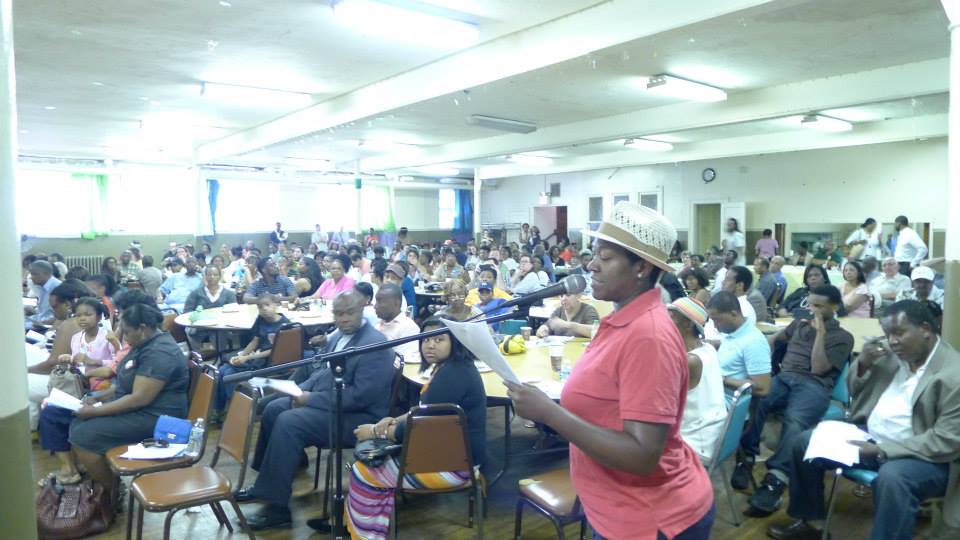

Gripping a microphone in the basement of the
Flatbush-Tompkins Congregational Church Saturday morning, neighbors who have for decades put down roots in our community – who have raised families here, who have built it from the ground up – asked the line of political candidates before them what they plan to do to change an unsustainable housing landscape that is forcing people from the homes where they hoped to spend the rest of their days.During the candidates’ forum held by the Flatbush Tenant Coalition, people spoke of unsustainable rent hikes, of unscrupulous landlords trying to squeeze people from rent-controlled spaces in order to rent them at a higher market price, of spending more than 50 percent of income on housing – of the heartbreak and devastation and anger over feeling as though they are in a nonstop battle against a Goliath called being displaced.
The candidates who participated in the weekend forum – which was attended by more than 230 people – are running for the seat
represented by Assemblywoman Rhoda Jacobs for 36 years,
as well as for the 20th Senate District, which has remained vacant after Eric Adams left to become the Brooklyn borough president in January.Challengers making a bid for Jacobs’ 42nd Assembly District, which covers Midwood, Ditmas Park, and Flatbush, include community activist Michele Adolphe, who ran against Jacobs in 2010; Democratic District Leader Rodneyse Bichotte, who challenged Jacobs in 2012; Community Board 17 member Victor A. Jordan; Mark Lieberman, a civic activist and journalist from Midwood Park; and Rickie Tulloch, the deputy chief financial officer of Harlem Hospital Center and chairman of Jacobs’ Community Advisory Council.
Those running for the 20th Senate District, which covers such neighborhoods as Prospect Lefferts Gardens, Crown Heights, Sunset Park, Park Slope, Brownsville, Prospect Heights, and Gowanus, include community advocate and educator Rubain Dorancy, Democratic District Leader and lawyer for the city Department of Finance Jesse Hamilton, and Community Board 9 member and former PTA member Demetrius Lawrence. Lawrence was not at the forum.
Assemblyman N. Nick Perry, who is running uncontested for his seat covering the 58th Assembly District, and state Sen. Kevin Parker, who also is running uncontested for his seat representing the 21st Senate District, both attended the forum.
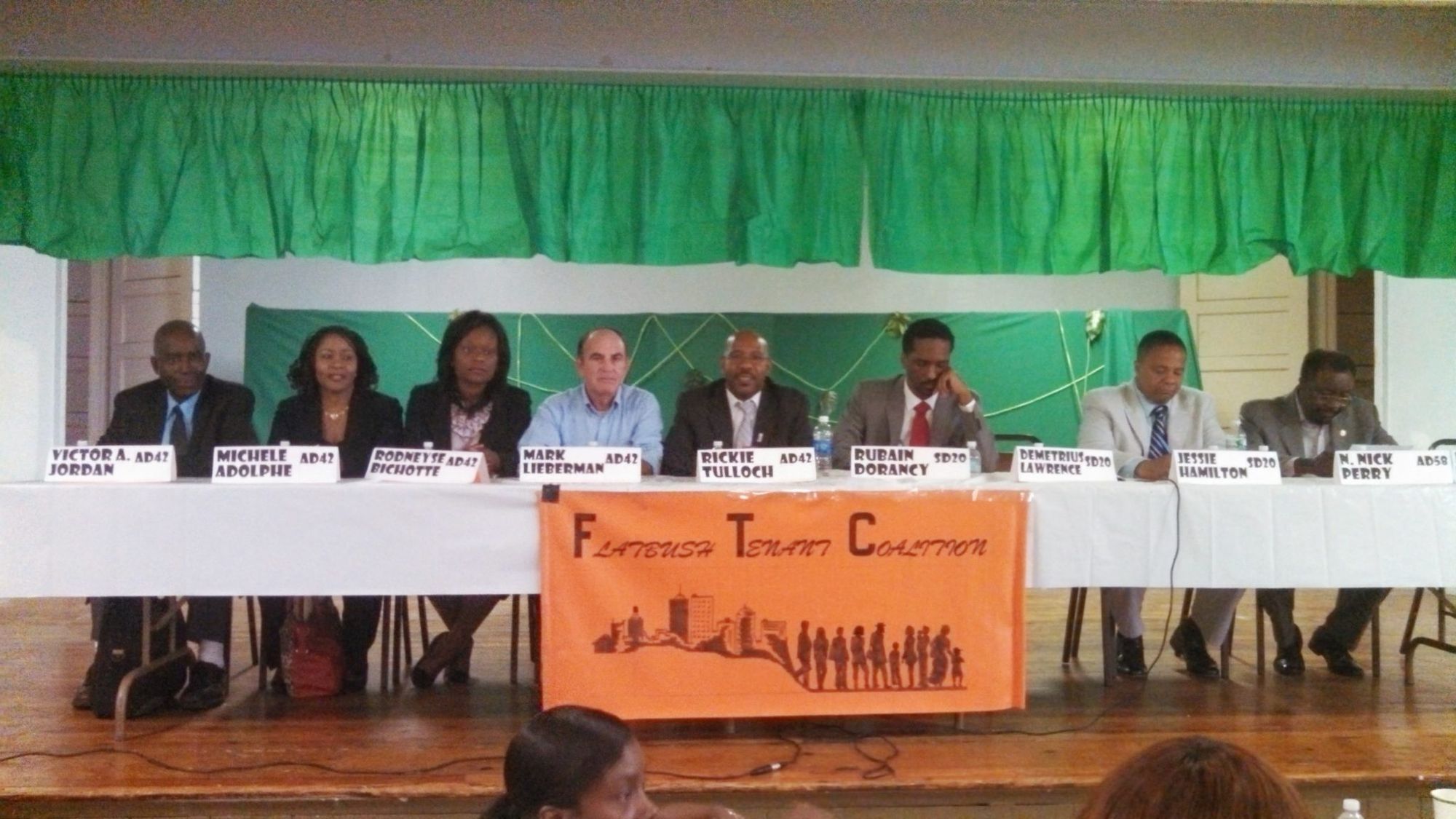
Below are some of the questions that members of the Flatbush Tenant Coalition asked, and the answers that ensued. We are listing them in the order they were asked.
In New York City, rent regulation protects more than 4 million tenants from huge rent increases and guarantees lease renewals. But a law called “vacancy decontrol” allows landlords to automatically increase the rent by 20% when tenants move out of their apartments. And when the rent hits $2,500, landlords can remove apartments from rent regulation. After that, landlords can increase the rent to whatever amount they want, and they can ask tenants to leave when their lease expires. What is your outlook on eliminating vacancy decontrol? (This question was specifically for the 42nd Assembly District candidates.)
Victor A. Jordan: “We have a housing crisis. We have a lot of people coming to Brooklyn to live. We’re welcoming them. It’s increasing the quality of life in New York City, however it’s creating a crisis in the housing market. We need more regulation; we need to expand the number of units under rent control… We need more enforcement to ensure landlords aren’t abusing their power… Once a unit is under rent control, it should remain under rent control.
Michele Adolphe: “We need more affordable housing… You need to get more involved in your own building to make sure your landlord doesn’t overcharge you… We need to keep fighting to keep rents stabilized, and we need to keep fighting for affordable housing.”
Rodneyse Bichotte: “We all agree we want to strengthen the rent guidelines to make sure we keep our families in their homes. Gov. Cuomo instituted what’s called a Tenant Protection Unit – and he retracted 28,000 units that had been decontrolled. In order for us to enforce that, we need more funding. In the state Assembly, I’d fight to appropriately allocate funding.”
Mark Lieberman: “We have to have creative plans. We need a 21st century Mitchell Lama program. We need more affordable housing, but we need to figure out how we get there. We get there with a partnership. We need mixed-use buildings – creating mixed-used buildings that can serve the entire community… My role as a member of the state Assembly is to get more state funding to support the mayor’s excellent affordable housing plan.”
Rickie Tulloch: “In 1993 and 1997, that’s when they came up with rent decontrol. What will I do? Eliminate that, reverse rent decontrol. If we can’t do that, raise the threshold from $2,500 to $2,800… I would make sure that the income level moves from $200,000 to half a million dollars. That way, that apartment will never become decontrolled… We have to make sure those who live in the community can stay within the community.”
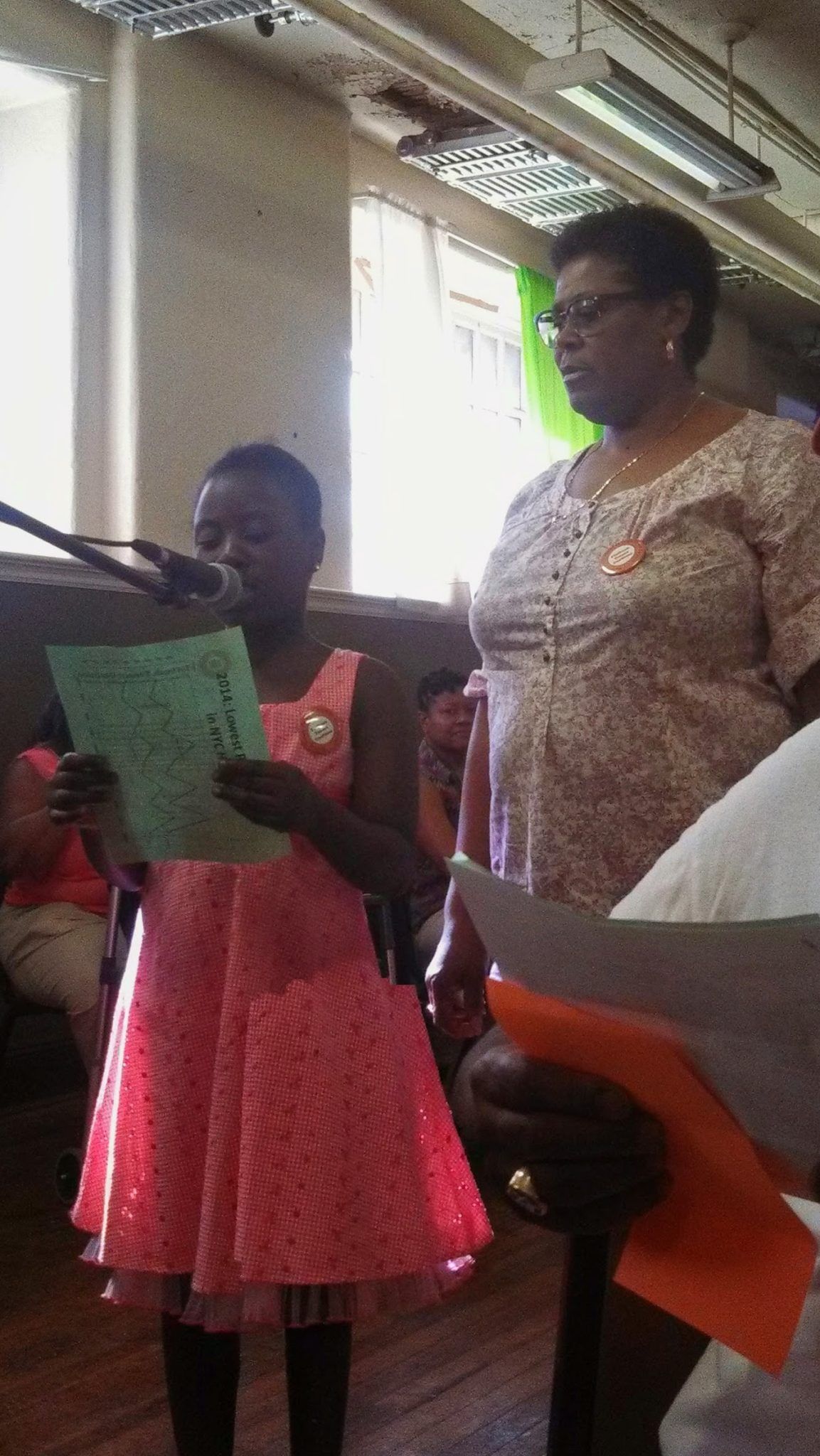
When landlords make building-wide improvements, they can apply to the Division of Homes and Community Renewal (HCR) to raise each tenant’s rent. This permanent rent increase is called a Major Capital Improvement increase. Landlords often hire their relatives to make these improvements, lowering and sometimes eliminating the cost. Yet, they’re still able to take advantage of an MCI increase. Landlords are profiting, while tenants are stuck with a permanent rent increase. What would you do to address this issue? What is your stance on holding HCR more accountable? (This question was for 20th Senate District candidates.)
Rubain Dorancy: “It’s education and enforcement. We have to make sure our tenants have access to advocacy or counsel when they’re facing eviction… Change the law so this isn’t unilaterally passed onto our tenants.”
Jesse Hamilton: “Make sure somebody investigates the work so we can make sure it was done properly.”
We all know that New York City has an affordable housing crisis. Our state and city governments are using taxpayer dollars to create so-called affordable housing. For example, New York State has a program called the “80/20 Program” where developers are given significant subsidies to build apartment buildings if they promise to make 20% of the apartments affordable. In our neighborhood, a developer – David Kramer of Hudson Companies – recently got $72 million from New York State through this program to build a 23-story luxury tower at 626 Flatbush Avenue, with only 51 so-called affordable apartments. This is not much affordable housing for such a big subsidy. Also, what counts as “affordable” is much higher than the incomes of families in the community. Finally, developers have to keep these apartments affordable for only 35 years – after that they turn into market-rate apartments. What would you do to improve the way our tax dollars are used to create affordable housing for families in our communities? (For 42nd Assembly District candidates)
Victor A. Jordan: “What do we mean by affordable? I say affordable means your rent shouldn’t exceed 30 percent of your income… I know people whose rent exceeds 50 percent of their income. How can you live?” Jordan also noted that there needs to be greater enforcement to ensure developers are complying with affordable housing regulations.
Michele Adolphe: “What’s affordable here in our district is not affordable in Brooklyn Heights, in Park Slope. In my district, we have school teachers, firefighters, people who are barely surviving in this economy… We need more affordable housing in the district.”
Rodneyse Bichotte: “I’ve had conversations with the mayor’s office, city planning, the EDC… Should it be 80-20 affordable? Maybe it should be 30 percent. We need to have a community partnership so electeds, community boards, and residents can be in the same room and plan development in our district.”
Mark Lieberman: “Rent is about 50 percent of expenses for probably most people in this room. As we develop affordable housing, we have to be concerned with the percentage of units in a development – and the mix of those units. We’re no longer in a situation where we have small families… We have families of various sizes, and that has to be written in… The state has to come up with more money to match the mayor’s plan. We need to encourage developers to create buildings that are multi-use so they are truly community centers.”
Rickie Tulloch: “The rent is just too high. When I’m elected, I will have a chance to have an input on that issue as it relates to the 80-20… There should be 20 percent for low-income and 30 percent for middle-income… We need to talk about what is affordable. What is affordable? What’s affordable in Park Slope definitely isn’t in East Flatbush.”
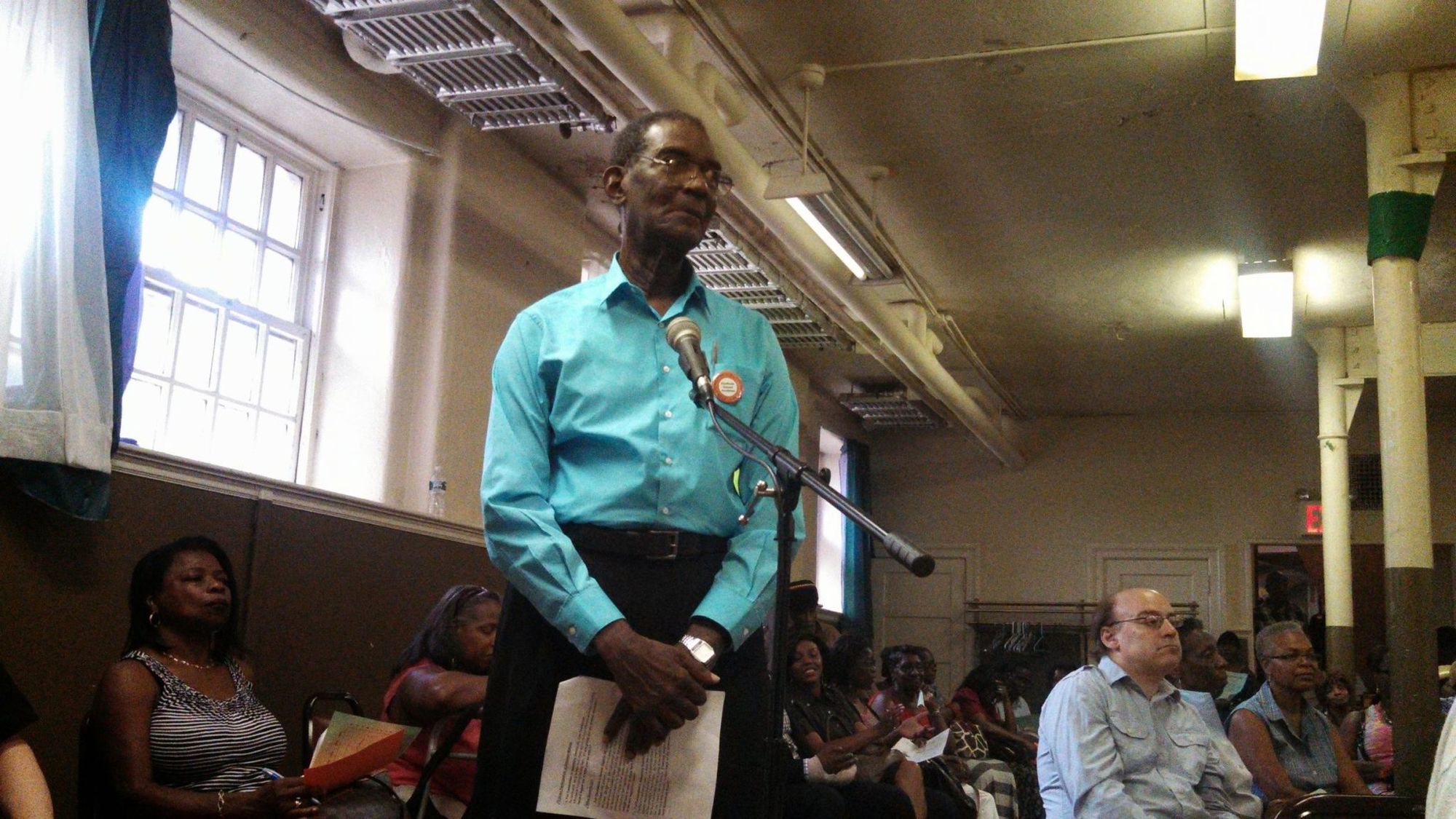
One way that landlords overcharge tenants is by charging them more than the legal rent. When tenants find out that they’re being overcharged, they can file an overcharge complaint with the Division of Homes and Community Renewal. However, due to the “four-year-rule” it is difficult for tenants to get any money back from overcharges that happened more than four years ago. If elected, would you support extending or abolishing the four-year rule, and why? (For 20th Senate District candidates)
Rubain Dorancy: “I do believe there are landlords who prey on tenants, especially when they don’t know their rights. A lot of us are immigrants who are working more than 50 hours a week. We are being exploited in this community. Education is absolutely critical. Working with various organizations, we can educate our tenants… We have to increase the number of people we have to hold landlords accountable.” Dorancy also stressed that developers should not be receiving tax breaks in the face of an affordable housing crisis.
Jesse Hamilton: “I’ll provide funding for legal services for people who are being harassed by landlords. Ninety-five percent of people who go to housing court don’t have an attorney… We have to make sure we have more enforcement on the side of our tenants.”
Both Dorancy and Hamilton said they would support abolishing the four-year rule.
As taxpayers, we give New York State money to fund different services, including affordable housing development. If I am giving you my money, shouldn’t I have a bigger say in what you do with it? (For the 42nd Assembly District candidates)
Victor A. Jordan: “I’ll have meetings, make myself accessible. I’m your agent; I represent you – you’ll be the one who’ll influence my position. So, yes, I would want you to know exactly what I’m doing. I’ll have an open door policy. You will not have trouble speaking to me. When I’m in Albany, I’ll be there representing you.”
Michele Adolphe: “It’s my responsibility to let you know what’s going on… I will come to visit you, hear your concerns so I can hear how to represent you in Albany. You’ll have a say in every decision I make. It’ll be an open door policy.”
Rodneyse Bichotte: “The whole point of my becoming a district leader was to empower our community… We need our community boards involved, our constituents involved – we need everyone involved. I’ll continue doing what I’m doing, continue my open door policy.”
Mark Lieberman: “Yes, you should have a say in how your money is spent. But you should also have a say in how much you pay taxes. The subway fare was kept at five cents for the first 50 years of the subway’s existence, because it was set by elected officials. There’s no one you can vote against if you don’t like the subway fare now. For water and sewer charges, there’s no one you can vote against if you don’t like the water and sewer rate. It’s set by the water board, and that is torture… One of my proposals is to reverse the decision that put the water board in place so you can have a say. And I’ll tackle the MTA next.”
Rickie Tulloch: “We know participation by citizens is key to addressing each and every issue… As a deputy CFO who has managed a $370 million budget, I know where to look for money to provide for our community. We need to have more community forums… At our community boards, I’ll make sure meaningful information is disseminated to citizens. I will work on your behalf to make sure as we look at the budget that you take an active role in what programs we want for our community.”
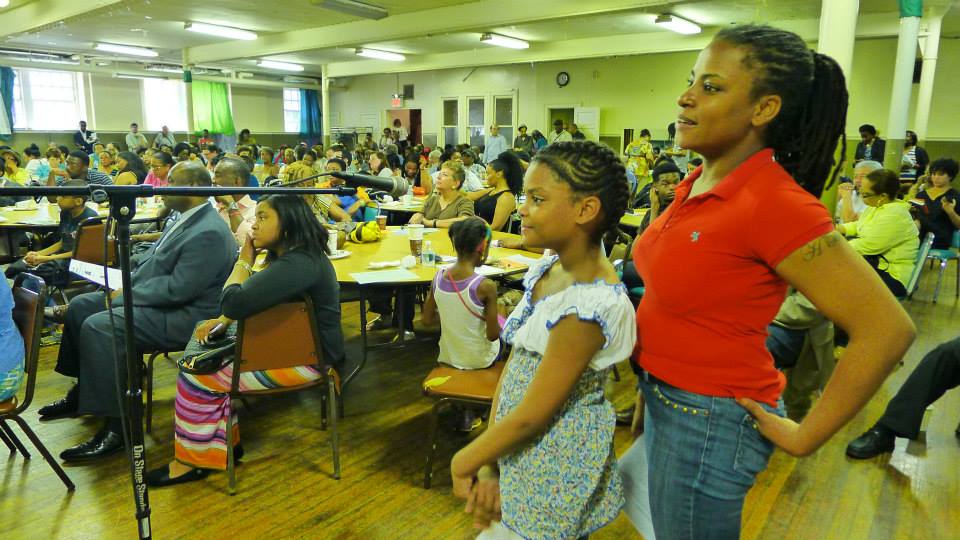
The Urstadt Law, passed in 1971 took away New York City’s power to pass local rent laws. So right now, although almost all of New York State’s rent regulated apartments are located in New York City, the laws that affect those apartments are decided in Albany by Upstate legislators who do not have rent regulated constituents. “Home Rule” would allow New York City government to regain control of the rent regulation laws. What is your position on repealing the Urstadt Law in order to allow New York City government to regain control of the rent regulation laws? (For the 20th Senate District candidates)
Rubain Dorancy: “We need to have the ability in New York City to determine our own rent laws… That’s the same problem we have with raising minimum wage and school government. In New York City, we need to be able to determine our own policies. I would absolutely be a champion for that.”
Jesse Hamilton: “We have to start a coalition throughout the state to make sure senators upstate understand what’s happening down here… Everybody’s hurting with rent. Gentrification is happening. Everybody’s getting pushed out… At the end of the day we have to work on minimum wage. Ten dollars is not enough.”
Housing Court, which is a New York State court, was created to make sure landlords do repairs. However, Brooklyn’s Housing Court has become a place where evictions are prioritized and housing conditions are placed on the back burner. Today, Brooklyn’s Housing Court has only one courtroom for getting repairs and fourteen courtrooms for evictions. In Housing Court, landlords also get fined by HPD for housing violations, but these fines are rarely collected. How do you propose we hold landlords accountable for doing repairs through Housing Court? What changes would you propose to make sure that HPD collects these fines in Housing Court? (Question for state Sen. Kevin Parker)
Kevin Parker: “I know people are frustrated with how Housing Court operates. The courts are their own branch of government. In terms of how many courts are assigned, that’s not up to legislators… That being said, part of the problem is that the court facility isn’t big enough. We’re trying to get another dedicated building just for Housing Court.”
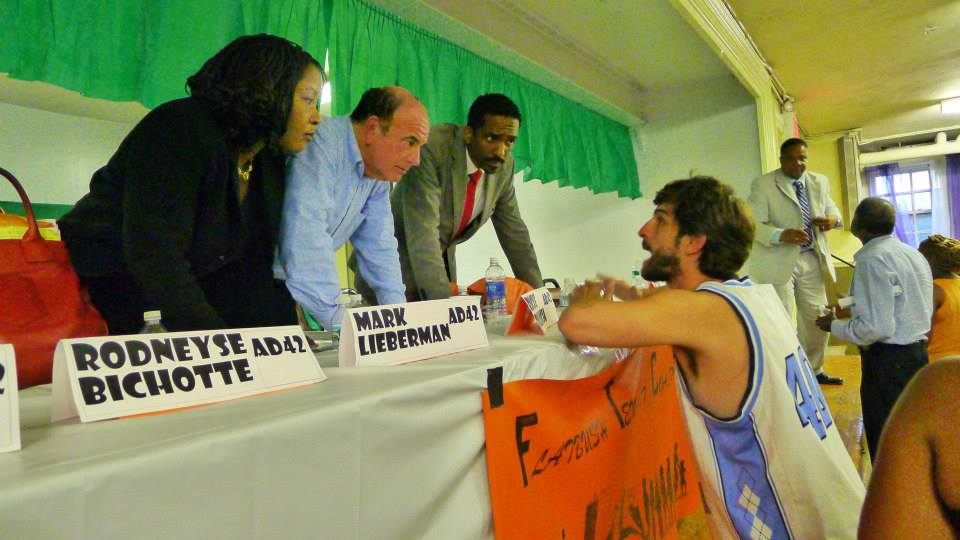
We need more jobs for youth and seniors. Initiatives, like youth apprenticeships and improved job security for seniors would increase the quality of life for youth and senior citizens within our community. What would you do to provide more jobs for youth and senior citizens? Please be specific about the types of programs or initiatives you would introduce. (For 20th Senate District candidates)
Rubain Dorancy: “We have to use the power of government to expand opportunities… We have to expand opportunities to women- and minority-owned business enterprises… The fastest growing jobs are fast food workers. They cannot pay rent, or for the basic needs of a family. We absolutely need to increase the minimum wage… We have to create more apprenticeship programs for our youth.”
Jesse Hamilton: “I’ve been working with unions in New York City – we’re trying to merge youth in our community with jobs out there… We have to educate our kids so they have skill sets to get jobs… We have to make sure our kids can go onto college and do well.” Hamilton also said he would like to start job apprenticeships at the high school level.
There almost no public community centers in our neighborhood where neighbors can meet, work on common goals, play sports, or just get to know each other. We believe lack of public community space contributes to higher crime rates and lower civic engagement. What are your views on the importance of public community spaces, and what would you do to create a community center in our neighborhood? (For the 21st Senate District)
Kevin Parker: “In the community we live, the question is where do we put public space? There’s underutilized public space… I grew up in the 80s, and when I was growing up, we had crime – but we didn’t have gangs like the way we have them now. Why is that? We got rid of arts, music, and after-school activities in schools. We need to bring that back. We have to organize around the after-school piece. Every school should be a Beacon school. There’s no reason a school should be empty from 3pm to 10pm.

Some candidates and elected officials are more responsive to wealthy donors and corporations that contribute large sums of money to their campaigns, rather than the citizens that vote them into office. If elected, how would you find a balance between the voters who put you in office and the donors that you received contributions from and made promises to? Is it more important to you to satisfy donor needs or fulfill campaign promises to voters? (For 42nd Assembly District candidates)
Victor A. Jordan: “As I raise money, I’m careful and cautious about who I accept money from and how much… I serve you and not my donors.”
Michele Adolphe: “I am for a stronger rule for campaign finance. Our premise as candidates is to make sure we provide services for constituents. My job is to get elected to represent you… When people give you a lot of money, they think you work for them. Regardless of who donated, I work for you.”
Rodneyse Bichotte: “I could have the opportunity to receive money from large donors simply because of my background. I’m a former engineer, teacher, and Wall Street investment banker. But I want to be at the mercy of my voters… For me, I don’t need promises from large donors. I’ve been turning away large donors… I’m going to continue with that level of integrity and passion to represent you.”
Mark Lieberman: “The legislature can – and should – adopt a strict campaign finance policy that includes matching funds… Right now an individual can contribute as much as $4,100 to my campaign – that’s too high… That’s a source of potential conflict and corruption.”
Rickie Tulloch: “I do believe we have to do some revision in the campaign finance rules on the state level… When you are elected, you are elected to represent the people. You should be for the people, for the community… (Assemblywoman Rhoda Jacobs) endorsed me because she knows I will continue that legacy.”
So, what do you think? What have your experiences been with affordable housing? What do you think needs to be done about it? What do you want to see from the person who is eventually elected in both the 42nd Assembly District and the 20th Senate District?

Photos by the Flatbush Tenant Coalition and Ditmas Park Corner.



